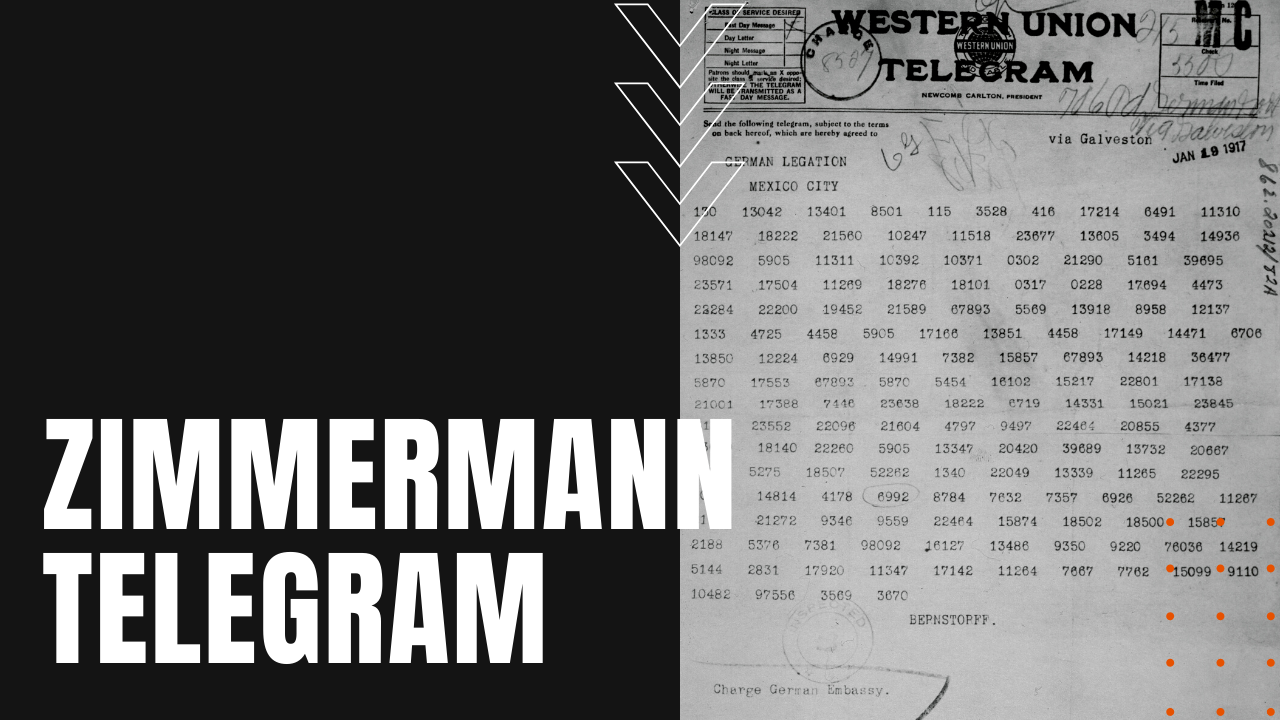Zimmermann Telegram: German Coup Attempt of WWI Intercepted

Despite America’s isolationist sentiment and declared neutrality to the war raging in Europe, in May of 1915, Germany’s predictable overreach ignited American outrage when a German U-boat sank the passenger liner Lusitania, taking the lives of nearly 1,200 passengers, including 128 Americans.
Despite inflamed anti-German feelings by many Americans, President Woodrow Wilson clung to his high-minded policy of nonintervention, stating that America was “too proud to fight.” Despite Wilson’s neutrality stance, German outrages continued, including the resumption of unrestricted U-boat warfare that sank American and foreign merchant ships without regard to nationality or stated neutrality.
Arthur Zimmermann’s Telegram Intercepted
But the final straw that forced America’s entry into World War One was a telegram sent by Germany’s foreign secretary Arthur Zimmerman in early 1917, when in one of the most brilliant intelligence coups of the twentieth century, the British intercepted and decoded Zimmerman’s ciphered message, which urged Mexico to join Germany in the fight against the United States, in exchange for the return of Texas, Arizona and New Mexico—lands that were lost after Mexico’s defeat in the Mexican-American War.
Germany’s reckless provocations proved to be too much for Wilson and Congress, ending the United States’ staunch isolationist position with a declaration of war on April the 6th, 1917, prompting Wilson to declare in his war message to Congress, that:
“It is a fearful thing to lead this great peaceful people into war, into the most terrible and disastrous of all wars, civilization itself seeming to be in the balance. But the right is more precious than peace, and we shall fight for the things which we have always carried nearest our hearts—for democracy, for the right of those who submit to authority to have a voice in their own governments, for the rights and liberties of small nations, for a universal dominion of right by such a concert of free peoples as shall bring peace and safety to all nations and make the world itself at last free.”
President Woodrow wilson Declaration of world war one
Over 4.7 million Americans served in the armed forces during the course of World War One, with nearly 3 million fighting in Europe, at a cost of 204,000 soldiers wounded, 53,402 battle deaths and 63,114 noncombat-related deaths, making the Zimmerman Telegram, the final ignition point before America’s entry into the war to end all wars.
